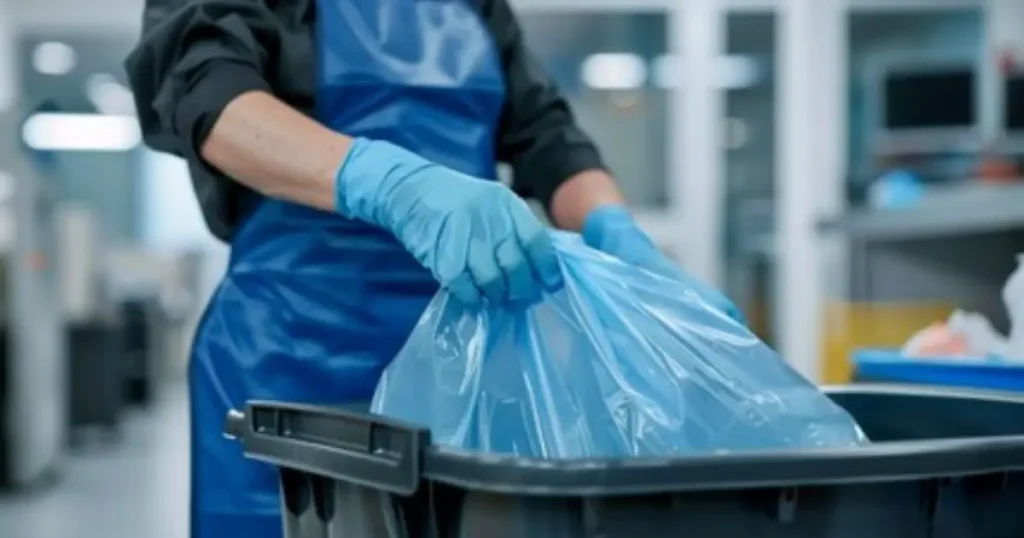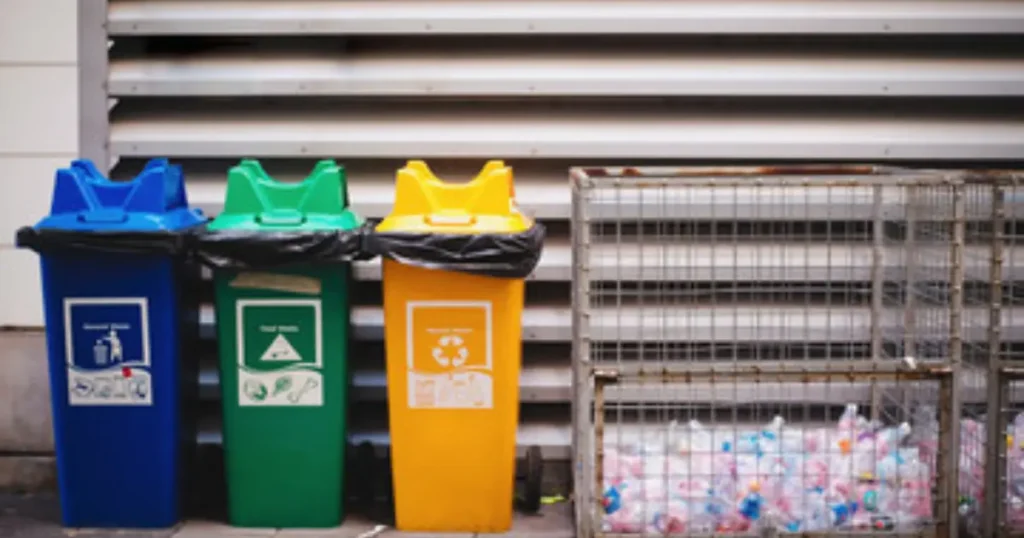The food and beverage industry is at the forefront of sustainability efforts, as consumers increasingly demand eco-conscious choices. From farm to table, the entire supply chain must adapt to new environmental standards, and businesses are under pressure to meet these demands while maintaining profitability. Consultants play a crucial role in guiding food and beverage establishments toward sustainability, providing expertise on minimizing waste, reducing environmental impact, and creating efficient operations. Both food and beverage consultants and waste management consultants are integral to these efforts, helping businesses navigate the complexities of sustainable practices in today’s competitive market. This article explores how these consultants are driving sustainability initiatives within the food and beverage industry.
The Growing Importance of Sustainability in Food and Beverage

Sustainability is no longer a niche concern in the food and beverage sector; it is now a core component of business strategy. Consumers are more environmentally conscious than ever before, often choosing brands and establishments that align with their values. For food and beverage companies, this means adopting sustainable practices that minimize environmental harm while meeting customer expectations for quality and responsibility.
In recent years, a significant focus has been placed on reducing food waste, conserving energy and water, and sourcing ingredients sustainably. A food and beverage consultant works with restaurants, hotels, and food production facilities to design strategies that incorporate these sustainability goals into daily operations. These strategies include energy-efficient equipment, sustainable sourcing of ingredients, and improved inventory management to reduce waste (Jones, 2016).
A waste management consultant, on the other hand, specializes in developing systems that minimize waste production and ensure that waste is disposed of responsibly. This involves everything from reducing food waste through better portion control and menu planning to implementing recycling and composting systems. Together, food and beverage consultants and waste management consultants provide a comprehensive approach to sustainability in the industry, ensuring that businesses can reduce their environmental footprint while remaining competitive and profitable (Papargyropoulou et al., 2014).
Role of Food and Beverage Consultants in Sustainability
A food and beverage consultant is an expert in improving the efficiency, sustainability, and profitability of operations within the food and beverage sector. These consultants work closely with businesses to identify areas where sustainability can be improved, whether it be through menu design, supply chain optimization, or resource conservation.

One of the key ways in which food and beverage consultants promote sustainability is through the selection of eco-friendly ingredients. This includes sourcing local and seasonal products, which not only reduce the carbon footprint associated with transportation but also support local economies. Additionally, they advise businesses on selecting organic or sustainably grown produce and meats, which are produced with minimal environmental impact (Cousins, Foskett, & Pennington, 2016).
Another important aspect of their role is to help businesses reduce their energy and water consumption. This can be achieved by recommending energy-efficient appliances, designing kitchens for optimal workflow, and implementing systems that reduce water waste. For example, consultants might recommend the installation of low-flow faucets or energy-efficient refrigeration units to lower the environmental impact of kitchen operations (Geerts, 2014).
The Role of Waste Management Consultants in Reducing Environmental Impact
Waste management is a critical component of sustainability in the food and beverage industry, as food waste accounts for a significant portion of the environmental footprint of restaurants and hotels. A waste management consultant focuses on reducing the amount of waste produced and ensuring that any waste generated is disposed of in an environmentally friendly manner. They play a vital role in helping businesses achieve zero-waste goals or significantly reduce their waste-to-landfill ratio.
One of the main tasks of a waste management consultant is to conduct waste audits, which identify the types and volumes of waste produced by a business. Based on the audit results, the consultant develops a comprehensive waste management plan that includes strategies for reducing waste at the source, improving waste segregation, and implementing recycling and composting programs. These efforts are particularly important in the food and beverage industry, where a significant portion of waste consists of organic material that can be composted (Papargyropoulou et al., 2014).
Consultants also focus on educating staff about proper waste management practices, such as separating recyclables from non-recyclables and ensuring that food waste is minimized through better inventory management and portion control. By implementing these strategies, businesses can significantly reduce their environmental impact and improve their bottom line by cutting down on waste disposal costs (Eriksson et al., 2014).
Collaboration Between Food and Beverage Consultants and Waste Management Consultants
For businesses looking to achieve sustainability, collaboration between food and beverage consultants and waste management consultants is essential. By working together, these consultants can create a holistic sustainability plan that addresses both the operational and waste management aspects of a food and beverage establishment.

For example, a food and beverage consultant might design a menu that uses ingredients with a lower environmental impact, such as local, organic, or plant-based products. At the same time, a waste management consultant would ensure that any food waste generated by the kitchen is properly composted and that other waste materials, such as packaging, are recycled or reused. This collaborative approach not only reduces the environmental impact of the business but also helps improve efficiency and profitability (Jones, 2016).
Additionally, both types of consultants play a key role in helping businesses meet regulatory requirements related to sustainability. Governments and local authorities are increasingly imposing regulations on food waste disposal, recycling, and energy use in commercial kitchens. By staying up-to-date on these regulations, consultants ensure that businesses remain compliant while also adopting practices that benefit both the environment and the bottom line (EPA, 2021).
Benefits of Sustainable Practices in Food and Beverage
Implementing sustainable practices, with the guidance of both food and beverage consultants and waste management consultants, offers numerous benefits to businesses in the hospitality industry. Not only do these practices reduce the environmental footprint of the business, but they also help improve its public image. Consumers are increasingly choosing to support businesses that demonstrate a commitment to sustainability, and businesses that fail to adopt eco-friendly practices risk being left behind.

Moreover, sustainable practices can lead to significant cost savings over time. For example, reducing food waste through better inventory management and portion control can lower food costs, while energy-efficient appliances can reduce utility bills. By investing in sustainability, businesses can enhance their profitability while also contributing to a healthier planet (Geerts, 2014).
Conclusion
The food and beverage industry is undergoing a transformation as sustainability becomes an essential part of doing business. Food and beverage consultants and waste management consultants are leading the way, providing the expertise and guidance needed to help businesses reduce their environmental impact, improve efficiency, and meet consumer demands for eco-friendly practices. By collaborating, these consultants create comprehensive solutions that address both operational and waste management challenges, ensuring that food and beverage establishments are well-equipped to thrive in an increasingly sustainability-focused market.
References
Cousins, J., Foskett, D., & Pennington, A. (2016). Food and Beverage Management. Goodfellow Publishers.
Environmental Protection Agency (EPA). (2021). Waste management in hospitality: Guidance for hotels and restaurants. EPA Waste Management Resources. https://www.epa.gov/hospitality-waste-management
Eriksson, M., Osowski, C. P., Malefors, C., Björkman, J., & Eriksson, E. (2014). The tree structure: A qualitative method for addressing food waste in hotels. Resources, Conservation, and Recycling, 81, 39-48. https://doi.org/10.1016/j.resconrec.2013.10.008
Geerts, W. (2014). Environmental certification schemes: Hotel managers’ views and perceptions. International Journal of Hospitality Management, 39, 87-96. https://doi.org/10.1016/j.ijhm.2014.02.003
Jones, P. (2016). Sustainability in food and beverage operations: A consultant’s perspective. Journal of Hospitality and Tourism Management, 29, 102-111. https://doi.org/10.1016/j.jhtm.2016.06.003
Papargyropoulou, E., Lozano, R., Steinberger, J. K., Wright, N., & Ujang, Z. (2014). The food waste hierarchy as a framework for the management of food surplus and food waste. Journal of Cleaner Production, 76, 106-115. https://doi.org/10.1016/j.jclepro.2014.04.020